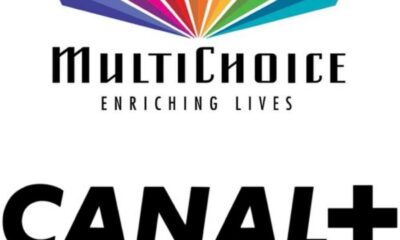Business
DStv’s Piracy Battle: How MultiChoice is Fighting Back in 2025

For decades, DStv has been the heavyweight of South African television, the place where sport fanatics get their fix and households tune in for big-ticket entertainment. But in 2025, the broadcaster’s fiercest battle is not with Netflix or Showmax. It’s with piracy, and the fight has gone global.
From BitTorrent to IPTV
Back in the early 2000s, piracy meant downloading series or films via BitTorrent or Usenet. It was slow, clumsy, and risky. Now, the battlefield has shifted. Today’s threat comes from slick, subscription-based pirate streaming platforms that mimic legitimate services, offering everything in one place at a fraction of the price.
For MultiChoice, DStv’s parent company, this is more than a nuisance. Chairman Elias Masilela warns that illegal streaming is stripping 25% to 35% from global broadcasting revenues every year, hurting not just big companies but also the creatives, technicians, and economies behind the content.
The 2025 Strategy: Fewer Cases, Bigger Targets
Through its cybersecurity arm, Irdeto, MultiChoice has gone on the offensive. In 2024 alone, it worked with South African law enforcement on 10 major anti-piracy raids, including the shutdown of Waka TV, a notorious IPTV service that streamed DStv channels illegally.
In its most recent reports, the company revealed a strategic pivot. Instead of chasing dozens of smaller cases, it’s focusing on fewer, high-impact strikes against upstream providers, the global operators that run these illegal platforms. The idea: take out the source, not just the reseller.
“Our monitoring tools have evolved,” MultiChoice explained. “We can now identify and block our platform from being used in piracy operations more effectively than ever.”
When Sports Streams Go Dark
The tactic appears to be working. Community forums and Facebook groups have lit up with complaints from Waka TV users. While on-demand films and shows still run smoothly, DStv channels, particularly live sports, have become glitchy or gone completely dark. Some users even accused DStv of “sabotaging” the streams, a claim that might not be far from the truth if MultiChoice’s targeted blocking is behind the outages.
SuperSport, one of DStv’s crown jewels, is a major motivator. With exclusive rights to premium sporting events, it’s a piracy magnet. Blocking illegal access during headline matches not only hits pirate operators where it hurts but also undermines their reliability for paying customers.
The Bigger Picture: Fragmented Streaming and the Piracy Comeback
Ironically, piracy had been on the decline when Netflix first entered South Africa, offering an easy, affordable way to stream popular shows. But content fragmentation changed that. Now, with series and films scattered across Disney+, Amazon Prime Video, Apple TV+, Showmax, and others, the cost and hassle of juggling multiple subscriptions have driven many users back to piracy.
Illegal platforms offer a one-stop shop, often integrated into easy-to-use apps like Plex. According to local ISP Axxess, torrent activity alone has jumped 20% in recent months.
A Fight Far from Over
MultiChoice’s shift towards smarter, more surgical anti-piracy tactics is still in its early days. But if the rising frustration among illegal streamers is any sign, it’s already making waves. As technology keeps reshaping both entertainment and its theft, DStv’s next decade may depend on how well it can keep its crown and its channels protected.
Also read: South Africa’s Retirement Crisis: Why Early Pension Withdrawals Could Leave Millions in Poverty
Follow Joburg ETC on Facebook, Twitter, TikTok and Instagram
For more News in Johannesburg, visit joburgetc.com
Source: MyBroadband
Featured Image: News24



























